Author: Tian Daxia (@Web3Donny)
In 2015, at the West Lake in Hangzhou, 25-year-old Justin Sun stood next to a group of China's most successful entrepreneurs. He was the youngest student in the first class of Lakeside University, and was surrounded by well-known entrepreneurs such as Jack Ma, Liu Chuanzhi, and Shi Yuzhu.
At that time, Jack Ma, as the first generation of Chinese entrepreneurs , appeared on the cover of Forbes, and Alibaba also completed the largest IPO in the history of US stocks, showing the world the power of Chinese business and its glory.
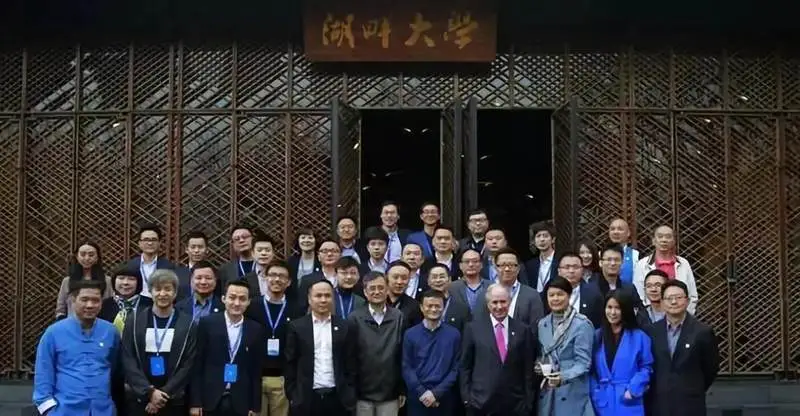 The first group photo of Lakeside University
The first group photo of Lakeside University
Ten years later, the world has changed.
In 2025, when the 34-year-old Justin Sun appeared on the cover of Forbes as "Crypto's Billionaire Builder", the young man who once stood behind the business giant was quietly taking over the baton of the times.
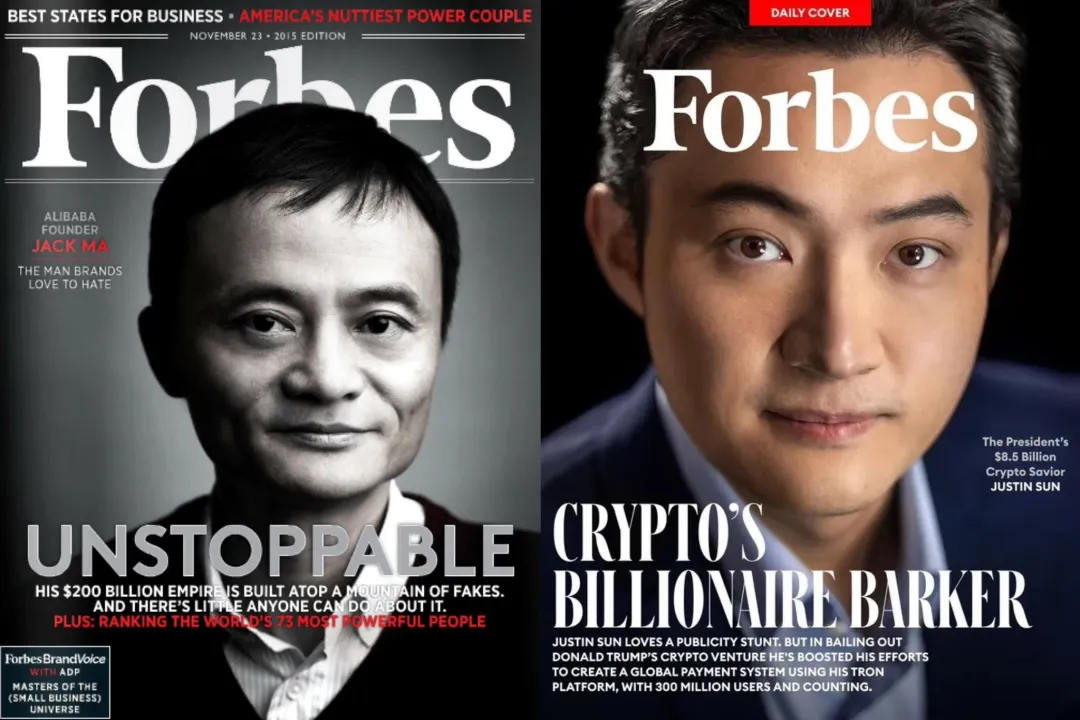
This is not a coincidence, because just half a month later, another major event about Justin Sun happened again.
In 2025, the U.S. Securities and Exchange Commission (SEC) officially accepted the spot TRX ETF application submitted by Canary Capital - this is the world's first ETF proposal with a Chinese public chain as the underlying asset.
If approved, it means that TRON has officially entered the mainstream financial system of Wall Street, and Justin Sun will become the first entrepreneur to make Chinese blockchain technology recognized by global traditional capital.
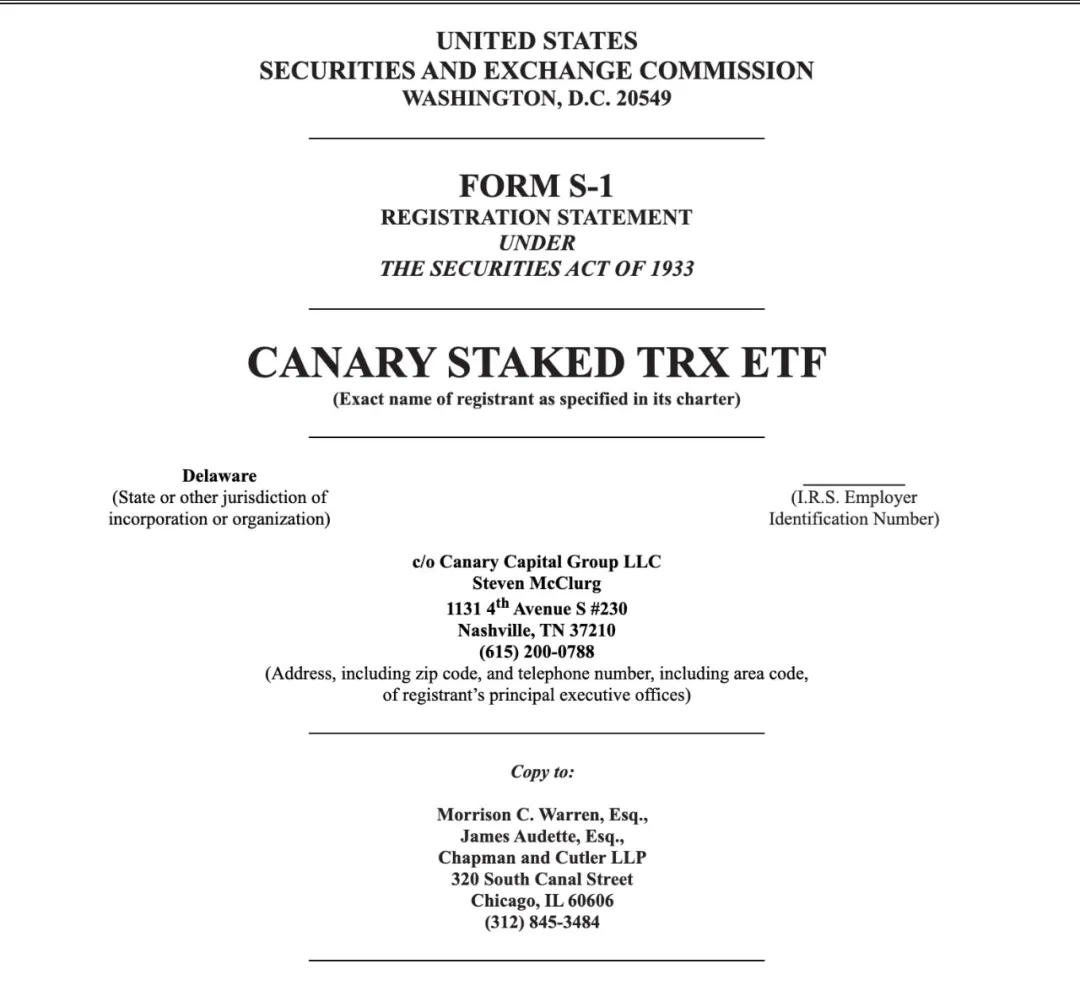
Ten years ago, no one could have imagined that this young man who liked to make noise on Weibo would become the most formidable Chinese force in the crypto world.
Starting his business in his twenties, from being questioned to being recognized, he spent ten years proving the value of an entrepreneur's perseverance.
His ambition is reflected in his ten-year persistence, as he wrote on Twitter:
"Decentralization will prevail".
This is not only an expectation for the industry, but also the best annotation for my own persistence for ten years.

1. Those white papers that once claimed to change the world
Looking through the chronicles of Chinese public chains, one can see stories of failure everywhere.
QTUM, the once highly anticipated "Chinese version of Ethereum", now has only a tiny number of daily active addresses. Its founder has long been semi-retired and never mentions his ambitions in public.
The situation of NEO is equally sad. This former industry benchmark had its last major update on GitHub several years ago. Just like its Chinese name "小蚁", it gradually disappeared into the depths of the jungle.
Not to mention Ontology and VeChain, which both promised to solve real pain points and gained countless fans during the most enthusiastic period of the industry, but are now slowly disappearing in this industry.
The cruelty of this industry is that it never sympathizes with feelings and never believes in promises. Those white papers that once boasted of changing the world eventually lost to the simplest business law: whether to continue to create value or be forgotten.
The history of the rise and fall of Chinese public chains is like a mirror, reflecting the most real survival rules of this emerging industry.
The story of TRON is completely different. It has not only survived three complete bull and bear cycles, but from its creation in 2017 to having 300 million global users in 2025, Justin Sun has completed the perfect transformation of a survivor.
"We survived and we are doing well," Sun said in a calm voice during a recent Twitter Space.
He has never concealed his ambition, and his ideal is to allow Chinese blockchain technology to enter the global financial stage.
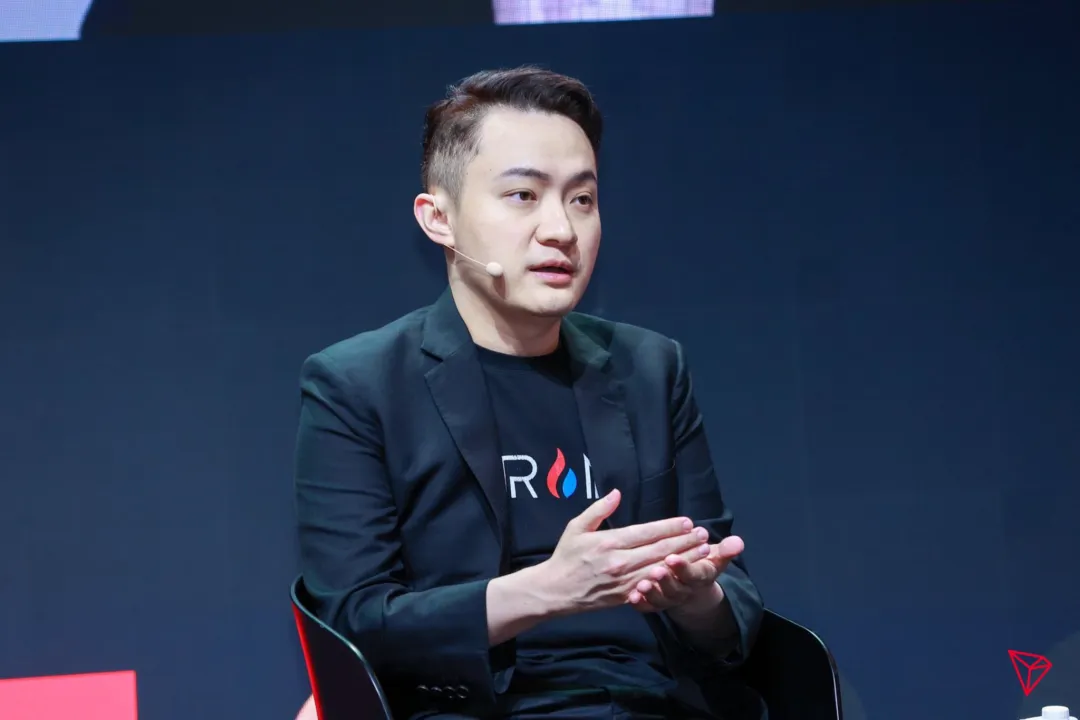
2. Who doesn’t want to do something ideal?
Angel investor Chen Weixing has invested in multiple blockchain projects such as Binance, Quantum Chain, Huobi, and Tron. Recently, he talked about Justin Sun during a live broadcast and said:
"In the past, Justin Sun may have only thought about making money, but now he really wants to do something with ideals. If there are people in China who are willing to do something, he is the one who is most willing to do it. "
Putting aside the marketing appearance, Justin Sun’s layout in the field of encryption can be described as far-sighted.
His achievements in the crypto space are not only reflected in the success of a single project, but also in the fact that he has built a large and diverse crypto ecosystem through innovation and business integration.
His strategic vision and execution ability enable platforms and projects such as Huobi HTX, TRON, Poloniex, and SunPump to operate in coordination and form a closed-loop crypto-economic system.
This integration not only enhances the value of each project, but also provides users with richer services and experiences.
Of course, in addition to his business achievements, Sun Yuchen’s marketing events that have become trending searches have obviously made him more widely known.
His performance art of buying a banana at a sky-high price of $6.24 million continued to shout out the value of blockchain to the world. Behind this seemingly ostentatious move, crypto culture has once again become the focus of public attention.
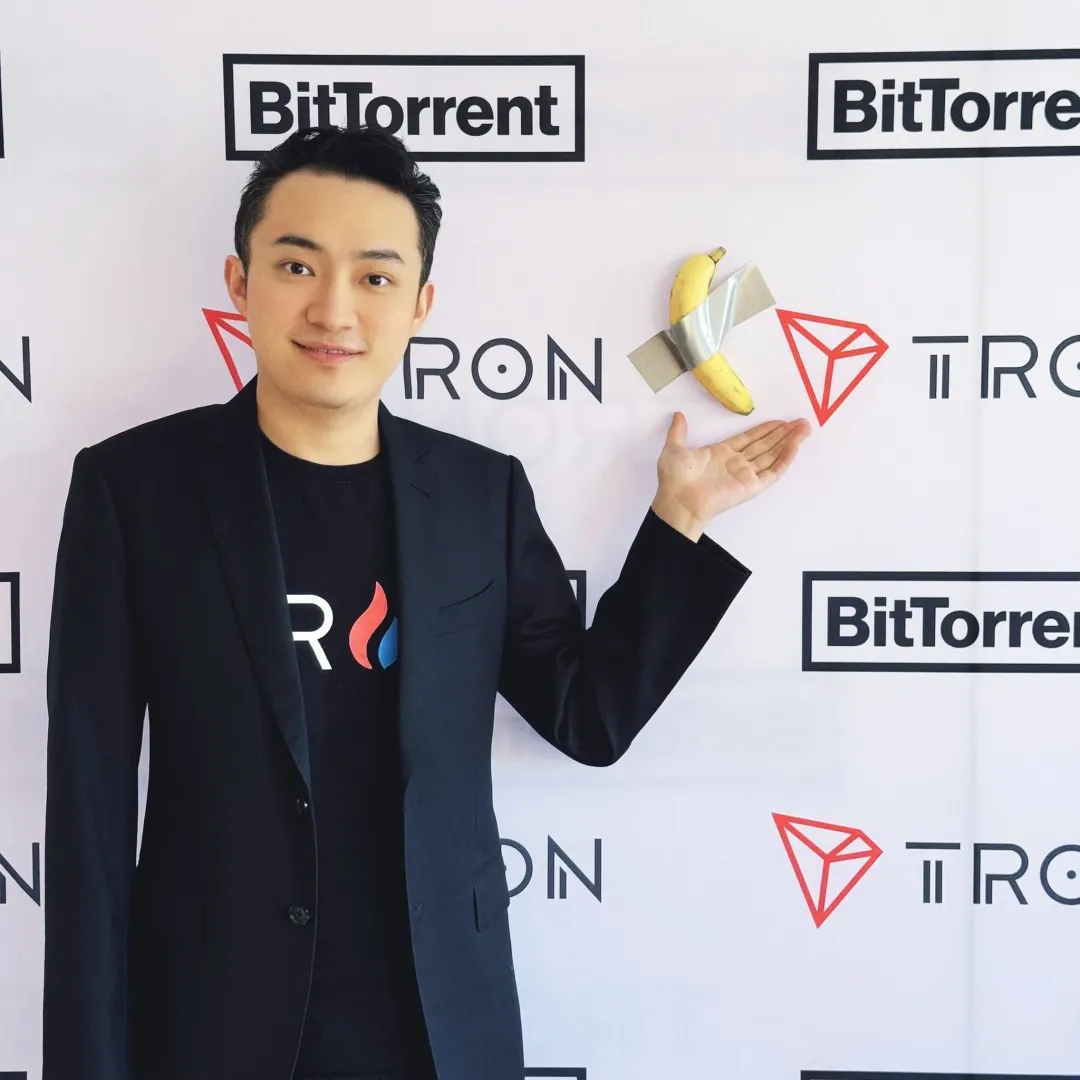
He was also able to bring the global internet celebrity "Hyperthyroidism Brother" Speed to the Web3 Hong Kong event, embracing younger ways of expression in the era of attention economy.

As he emphasized in the interview: "Our industry needs to be seen and understood."
This unconventional marketing and strategy is also reflected in his strategic cooperation with the Trump family.
3. Let cryptocurrency become a bridge between business and politics
At the end of 2024, Justin Sun spent US$75 million to become the largest investor in the Trump family's encryption project WLFI.
On November 26, 2024, Justin Sun’s profile added a new title: Consultant to the Trump family’s cryptocurrency project WLFI.
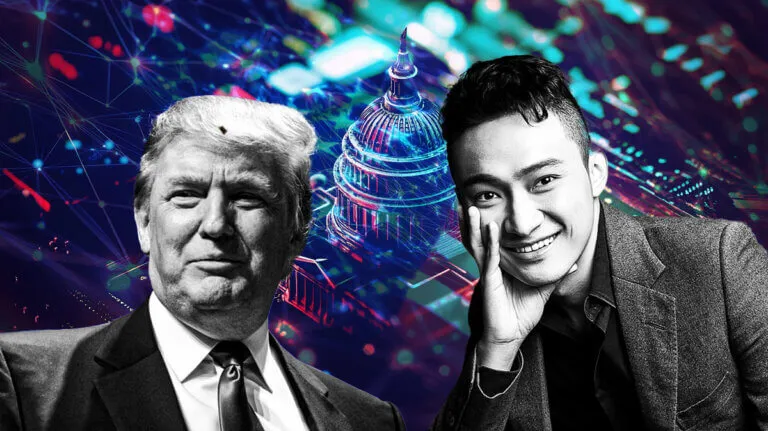
Many people joked that Brother Sun’s move was extremely ingenious.
Globally, the crypto industry has always been experiencing a "circle" phenomenon, with many projects only circulated within a small range and unable to reach a wider audience.
And Justin Sun uses his own way to make cryptocurrency a bridge between business and politics, pushing the industry towards the mainstream.
This investment also marks an important intersection of Eastern and Western crypto cultures.
As a cryptocurrency project under the Trump family, WLFI represents the recognition and participation of traditional American capital in the crypto industry. The participation of Justin Sun has injected the perspective and resources of Eastern crypto culture into this project.
What is even more intriguing is that in March when the market fluctuated violently, TRX was the only asset in WLFI’s investment portfolio that remained profitable, while other mainstream crypto assets such as Ethereum caused the Trump family to suffer heavy losses.
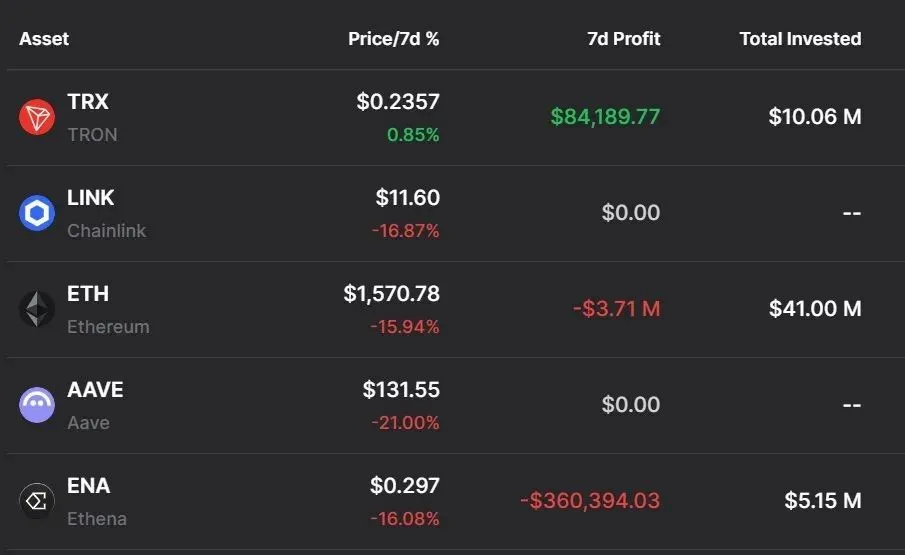
At the same time, Huobi HTX also rose against the trend under his operation. According to data provided by CoinGecko, Huobi HTX was the only mainstream exchange that achieved a month-on-month increase in spot trading volume in Q1 - an increase of 11.4%.
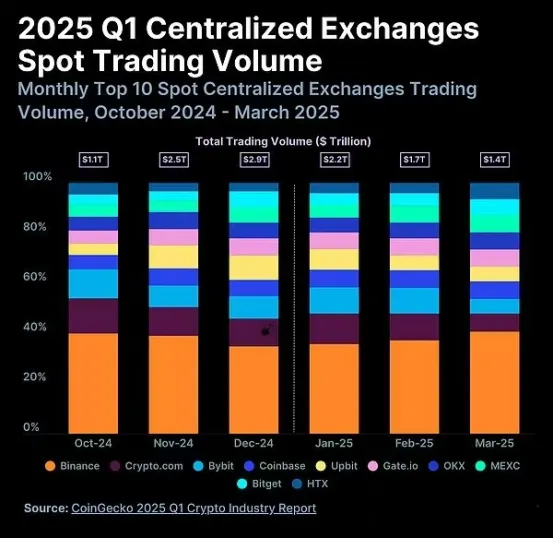
4. Some people will grow old, and some people will be young.
At the Hong Kong Blockchain Conference in April this year, Justin Sun and Changpeng Zhao’s meeting was quite symbolic.
Zhao Changpeng, the former head of Binance, has now stepped down from the CEO title due to regulatory reasons and entered semi-retirement. He also lamented that "this industry is ultimately a stage for young entrepreneurs."
Such scenes are not uncommon in the crypto world. Li Lin gradually faded out of the public eye after transferring the controlling stake of Huobi; Wu Jihan of Bitmain turned to investment after experiencing a battle for control; Anthony Di Iorio, co-founder of Ethereum, even directly announced his "exit from the crypto circle", and another Vitalik was also criticized by the community for no longer devoting his energy to Building. These once powerful figures have more or less begun to retreat.
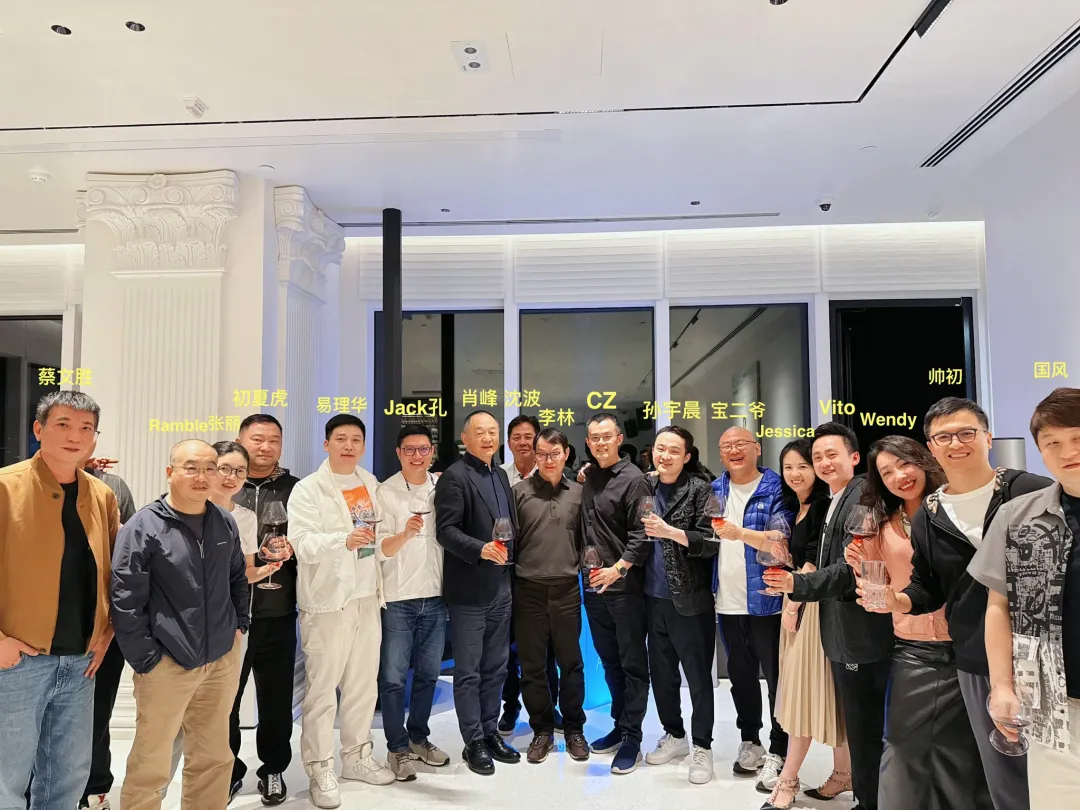
Image source network
However, Justin Sun has always been active in the front line because he started his business early enough. You will find that he is only 34 years old, which is exactly the age of thirty.
In the crypto industry, he has already achieved enough success and made enough money, but he still chooses to fight at the forefront.
5. The imprint of the lakeside and the promise of the future
Since the establishment of Lakeside University in 2015, the theme of Jack Ma’s first lesson has not changed in the past five years, and it is all about "mission, vision and values."
In Jack Ma's view, "If after three years at Lakeside, students do not have a sense of mission, and are not clear about vision and values, you cannot graduate from Lakeside, and you will never graduate."
These words still left a mark on Justin Sun’s mind ten years later.
This long-termist thinking mode can be found in every key decision he makes. In 2014, when IDG Capital's "Post-90s Fund" was regarded as a joke in the industry, he was one of the few entrepreneurs who persisted to the end; in 2017, when TRON was first established, his ambition was to build a global decentralized and free system; until 2025, when the TRX ETF S-1 application was submitted to the US SEC, his persistence finally paid off.
Everything is just as he said in an interview 10 years ago: "Entrepreneurs cannot just limit themselves to their own companies and projects, they must have a big picture and firmly believe that they can change the entire industry through their own efforts. This is also the direction that I and my project have been working towards - to contribute to the entire industry through my own efforts."
As he said:
"Fear, awe, respect - that's the attitude toward regulation."
“Inheritance, perseverance, and construction—this is what I ask of myself.”
This is his "ambition" and his commitment to long-termism.

Who would have thought that this child born in 1990 has quietly taken over the baton of the times (Photo source: Sun Yuchen’s Twitter)













